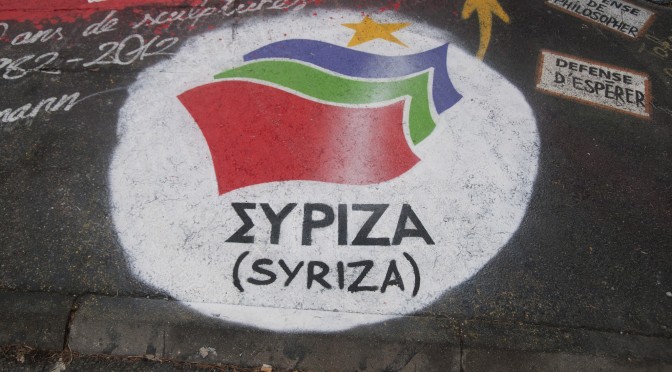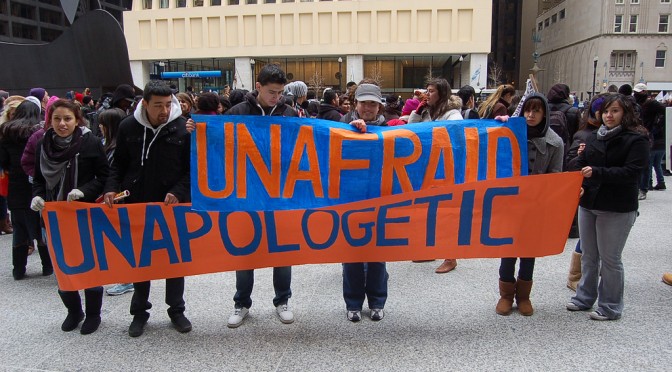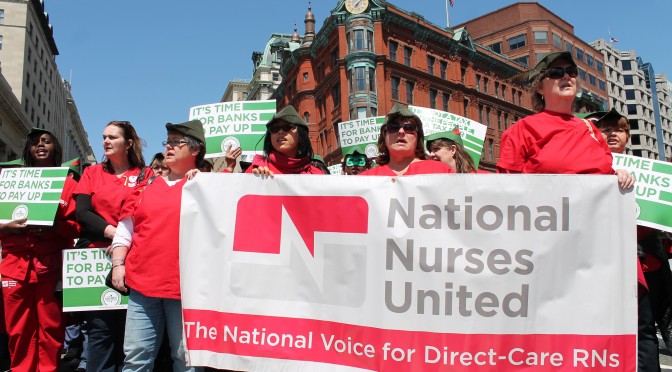Immigrant youth organizing has grown to become one of the most vital social movement in existence today. How has this movement grown to where it is today? What are some of the pivotal strategic moments that have brought immigration reform to the center of mainstream discourse? An article in the latest issue of New Labor Forum provides some answers.
One of the most important social movements in the United States is the undocumented youth movement (Dreamers). The movement has not been successful in passing the federal Development, Relief, and Education for Alien Minors (DREAM) Act. It has, however, worked closely with its allies to rack up an impressive string of local and state-level victories and pressured the Obama administration to pass Deferred Action for Childhood Arrivals (DACA) in 2012. This latter measure provided approximately 553,000 undocumented youths with temporary relief (two years) from deportation. DACA was an important victory in its own right, but it also provided the legal and political precedent for the broader immigrant rights movement to push for a similar measure to cover all undocumented immigrants residing in the country (“DACA for all”). The Dreamers also helped politicize large segments of the undocumented youth population while inspiring thousands of older immigrants to take a more assertive and contentious stance in asserting their rights to stay in the country. Youths and adults now undertake high-risk civil disobedience actions including chaining them- selves to the White House, blocking deportation buses, occupying offices of national politicians, and engaging in hunger strikes, among other things. The importance of the Dreamers should therefore be understood broadly: they have achieved gains for undocumented youths, and they have unleashed political and legal dynamics that stand to alter the status of the broader undocumented population. Such dynamics contributed to an executive order introduced by President Obama on November 17, 2014 to provide temporary residency to an expected four to five million immigrants with tenuous legal status.
This article highlights contrasting moments in the movement’s development. The first reflects a strategy of the “bounded Dreamer,” aimed to construct political messages that stressed the “deservingness” of this specific population and an organizational infrastructure that instilled disparate youths with discipline when making arguments in the public sphere. The second reflects the strategy of the “unbounded Dreamer,” enabling the incorporation of youth activists into other mobilizations and struggles, especially the anti-deportation campaigns of recent years (2011-2014). The Dreamers in this latter instance are less bound to the tight framing categories of the earlier strategy, feel freer to express broader and more contentious arguments, and make much more use of informal organizations and social media to organize their political work. This article identifies these two strategic moments and assesses the factors that helped the transition from the former to the latter.
Read more at the New Labor Forum online.
Photo by peoplesworld via flickr (CC-BY-NC).






